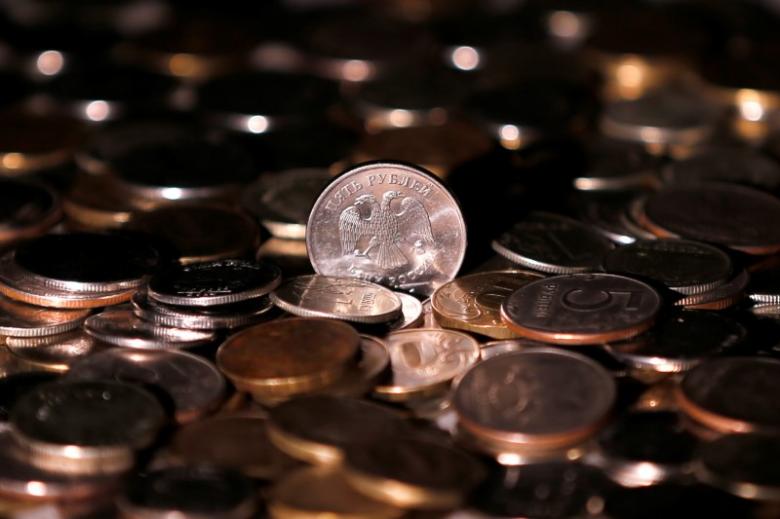Russian acquisitions by overseas buyers have hit their highest level since before sanctions were imposed in 2014, Thomson Reuters data shows, with a renewed willingness to do business with Moscow.
Inbound merger and acquisition (M&A) volumes total $4.6 billion in 2017, almost triple the $1.6 billion seen for the same period in 2016 and the highest for the same period since 2012, with Deutsche Bank (DBKGn.DE) the top adviser across Russian M&A.
Bankers say the increase is an indication that Western banks and companies are more willing to deal with Moscow, despite the sanctions imposed by the United States and the European Union over the annexation of Crimea.
This, along with weak energy prices have hurt Russia’s economy although a weakening of the rouble RUB= to above 60 a dollar in the last quarter, close to the level it was at the start of the year, has made Russian assets more attractive.
“There has been a pickup. I think it was largely on the back of (an) improved economic outlook, rather than (an) easing geopolitical environment. People have got used to the sanctions,” Alexei Yakovitsky, global CEO at Russia’s VTB Capital (VTBR.MM) said.
VTB Capital is in third place in the adviser rankings, behind U.S. bank Morgan Stanley (MS.N) and Deutsche.

Russian rouble coins are seen in this picture illustration taken June 7, 2016. REUTERS/Maxim Zmeyev/Illustration
Deals by overseas buyers in Russia make up more than half of all transactions done so far, with a slowdown in domestic M&A pushing the total value down to $7.5 billion from $10.3 billion in 2016. Last year’s figure was boosted by state gas company Gazprom (GAZP.MM) buying its own shares from state development bank VEB for $2.02 billion. [nL8N19L22M]
Related story: Konica Minolta to buy Ambry Genetics, deal worth up to $1 billion
Deutsche Bank’s leading position was thanks to its role in the biggest Russia M&A deal so far this year, the proposed $1.85 billion purchase by Austria’s OMV (OMVV.VI) of a 25 percent stake in oil and gas group Severneftegazprom from Uniper (UN01.DE). [nFWN1GG0U1]
Germany’s largest bank heads the tables despite having faced recent problems in Russia. It was fined $630 million earlier this year for a Russian “mirror trading” scheme and is now resisting calls to share information about U.S. President Donald Trump’s finances. [nL8N1JJ44F] [nL1N1FK22F]
Deutsche Bank said in June it was committed to developing its presence in Russia, with its investment banking business there managed from global hubs.[nR4N1JC023]
New normal
However, bankers operating in Russia are cautious on whether the upswing in foreign dealmaking will go much further.
Some had hoped Trump’s election would be a step towards sanctions being lifted, but last month the U.S. government added 38 individuals and organizations to its list of those sanctioned over Russian activities in Ukraine.
“It’s reached a new normal. I don’t necessarily expect there will be tremendous growth to pre-crisis levels,” a senior banker at a major investment bank based in Moscow told Reuters.
Austria leads the countries buying into Russia, with China in second position driven in part by a $887 million deal to sell a 10 percent stake in gold producer Polyus (PLZL.MM) to a Fosun International (0656.HK) led consortium. [nL8N1IX4LW]
Polyus’ (PLZL.MM) sale of $879 million worth of shares in Moscow and London became the biggest Russian equity markets transaction on the final day of the second quarter, with British investors snapping up around half of the shares.
This brings the total volume of equity capital market deals in 2017 to $2.2 billion, more than three times the value in the same period of 2016, with VTB Capital the top equity book runner for Russian listings. [nL8N1JR0IM
“Things got done and things got done on market terms …bona fide Western funds are coming to Russia,” the banker said.
Courtesy Reuters


